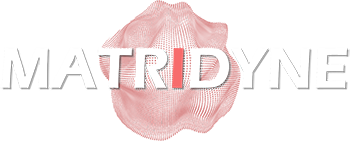Data Interoperability Solutions

Navigating CMS Interoperability and Prior Authorization Rules with Confidence
As the healthcare payer industry evolves, data interoperability has become an urgent priority, driven by the CMS Interoperability and Prior Authorization Final Rule (CMS-0057-F) and other regulatory mandates such as Transparency in Coverage, Meaningful Use, and CMS interoperability requirements. Matridyne’s Data Interoperability Solutions are specifically designed to help healthcare payer CIOs address these complex requirements while preparing for a future of seamless, secure, and efficient data exchange.
The CMS-0057-F rule places significant emphasis on enhancing data accessibility and streamlining prior authorization processes to improve member and provider experiences. Healthcare payers must now implement APIs that allow real-time data sharing with members and providers, automate prior authorizations, and ensure compliance with evolving standards like FHIR®. Matridyne brings unparalleled expertise in these areas, helping organizations not only meet regulatory deadlines but also design systems that improve efficiency and scalability.
Our tailored approach begins with an assessment of your organization’s current data environment, identifying gaps in compliance, integration, and functionality. From there, we develop a roadmap to implement solutions that address immediate regulatory requirements while positioning your organization for future challenges. Whether integrating systems to meet Transparency in Coverage mandates, improving real-time data exchange for Meaningful Use, or building FHIR-based APIs, we deliver comprehensive solutions that ensure compliance and operational excellence.
Matridyne’s expertise extends beyond regulatory compliance to focus on enabling healthcare payers to derive strategic value from their data. By addressing issues such as data silos, inconsistent formats, and fragmented systems, we help payers create robust data infrastructures that support critical processes like claims processing, care coordination, and population health management. With advanced validation and cleansing tools, we ensure that all data exchanged is accurate, complete, and actionable.
A key differentiator of Matridyne’s services is our ability to balance strategic advisory with hands-on execution. Our team works closely with CIOs to design tailored interoperability strategies, select the right tools, and build scalable frameworks that meet both regulatory and business objectives. From configuring interfaces and managing data mappings to rigorous testing and implementation, our solutions are practical, reliable, and future-focused.
Security and compliance are foundational to our interoperability solutions. With regulatory requirements expanding, including HIPAA, SOC 2, and CMS interoperability mandates, Matridyne integrates robust security measures and governance frameworks into every solution. By embedding compliance into the architecture, we not only mitigate risks but also ensure that your organization is prepared for future regulatory changes.
Looking ahead, the CMS Interoperability and Prior Authorization Final Rule is just one step in a broader push toward transparency, efficiency, and member-centered care. Matridyne helps healthcare payers anticipate these changes and proactively design systems that adapt to evolving regulations and industry demands. By leveraging standards like FHIR and advanced technologies such as API-driven integrations, we ensure that your organization remains at the forefront of interoperability and operational innovation.
Contact Matridyne today to learn how our Data Interoperability Solutions can help your organization navigate the CMS-0057-F rule and other interoperability mandates with ease and confidence. Let us empower your team to meet regulatory challenges head-on, optimize data flows, and build a foundation for sustained success in an increasingly interconnected healthcare ecosystem.
Common Projects
Develop and deploy FHIR-compliant APIs to enable real-time, secure data sharing between healthcare payers, providers, and members, ensuring compliance with CMS interoperability mandates.
Create an end-to-end strategy for integrating disparate systems, reducing data silos, and enabling consistent, accurate, and accessible information flow across all payer operations.
Streamline prior authorization workflows through real-time data integration, automated approvals, and seamless connectivity with provider systems, improving efficiency and member satisfaction.
Implement AI-powered tools to clean, validate, and standardize data across systems, ensuring accuracy, compliance, and readiness for regulatory audits.
Create interactive dashboards that consolidate data from multiple sources, providing actionable insights for decision-making and compliance tracking.
